After easily meeting my reading goal last year of 25 books, I decided to double it this year and aim for 50 books in 2021. It turned out, again, to be a very achievable goal. In an unexpected twist of genres though, I found that going back through my top-rated books, most were non-fiction! I typically love a good rom-com (and I did have many of those!) as well as intriguing drama (also, a lot of those!), so I was surprised to find that most of my favorites were…not those.
In total, though I have a couple weeks left in the year to continue adding, I’ve read over 19,000 pages in 54 books. Both the shortest and the longest books I read are in my top 12 picks! To be honest, I had to reshuffle a bit because I had this list compiled a few days ago and then I finished Malibu Rising last night and had to kick another book off my list to make room for it in my top 12.
You can follow all my literary pursuits on Goodreads and, occasionally (and only the very best), on Instagram.
In no particular order, here are my top 12 books of 2021.
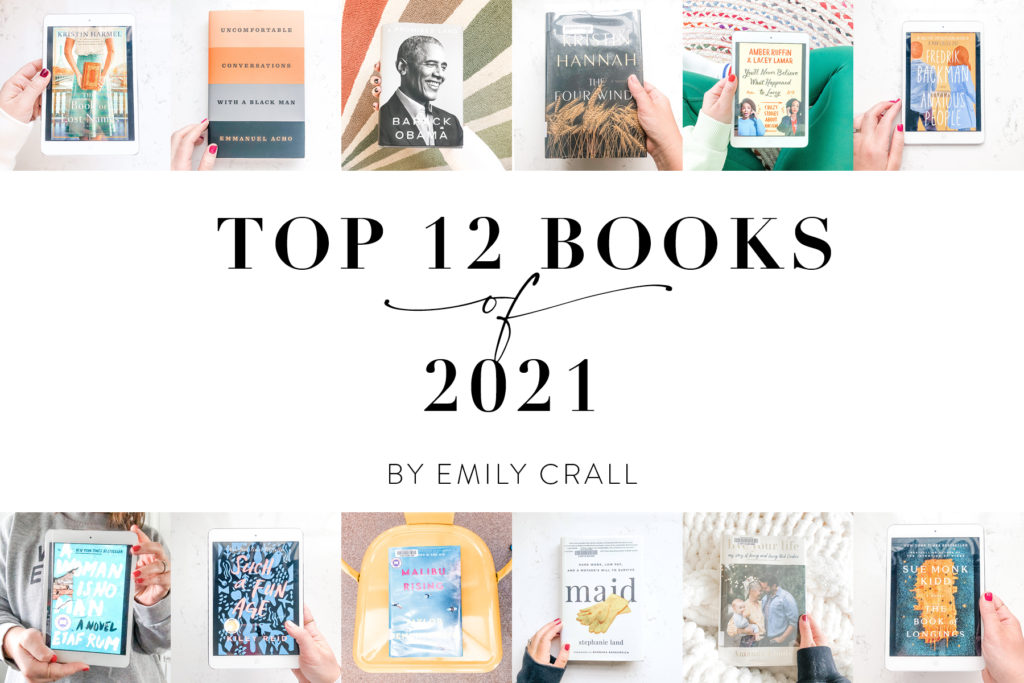
A Woman Is No Man by Etaf Rum
“Writing the final passage was hard because even though I knew Isra’s fate I wanted to express it in way that felt truer to the overall message of the novel, which is one of hope. The point of the ending is not Isra’s literal fate, which the readers knows all along, but her inner growth as a character and what her strength and courage will ultimately mean for her daughters in the future. It was an ending of hope.” — Etaf Rum
This book is not a lighthearted read. (Understatement) And honestly, I was furious at times (most times?) with the characters. Even as I understood this heavy patriarchal society and the immense horror that comes along with it, I also wanted to say, YOU DESERVE MORE THAN THIS. But how do you teach a girl or woman to stand up for herself if she’s never seen it exemplified? If the patriarchy rules in such strict and strong measures, protected even by other women, how does one defy it or escape it?
I felt such sorrow and hopelessness through much of this book, but there was also so much hope. I loved Sarah’s fire and Deya’s searching and then strength. I pitied Isra for…everything (and felt such sorrow that she didn’t know she wasn’t crazy, but just needed mental health help…and a safe home), but ultimately her courage was so honorable and I admire her for that.
Finally, I absolutely cannot believe this is Rum’s first book. 🤯 Impeccable writing, a twisting back and forth story line, wonderful character first person perspectives, and an astounding first publication.
“I was born without a voice, one cold, overcast day on Brooklyn, New York. No one ever spoke of my condition. I did not know I was mute until years later, when I opened my mouth to ask for what I wanted and realized no one could hear me.”
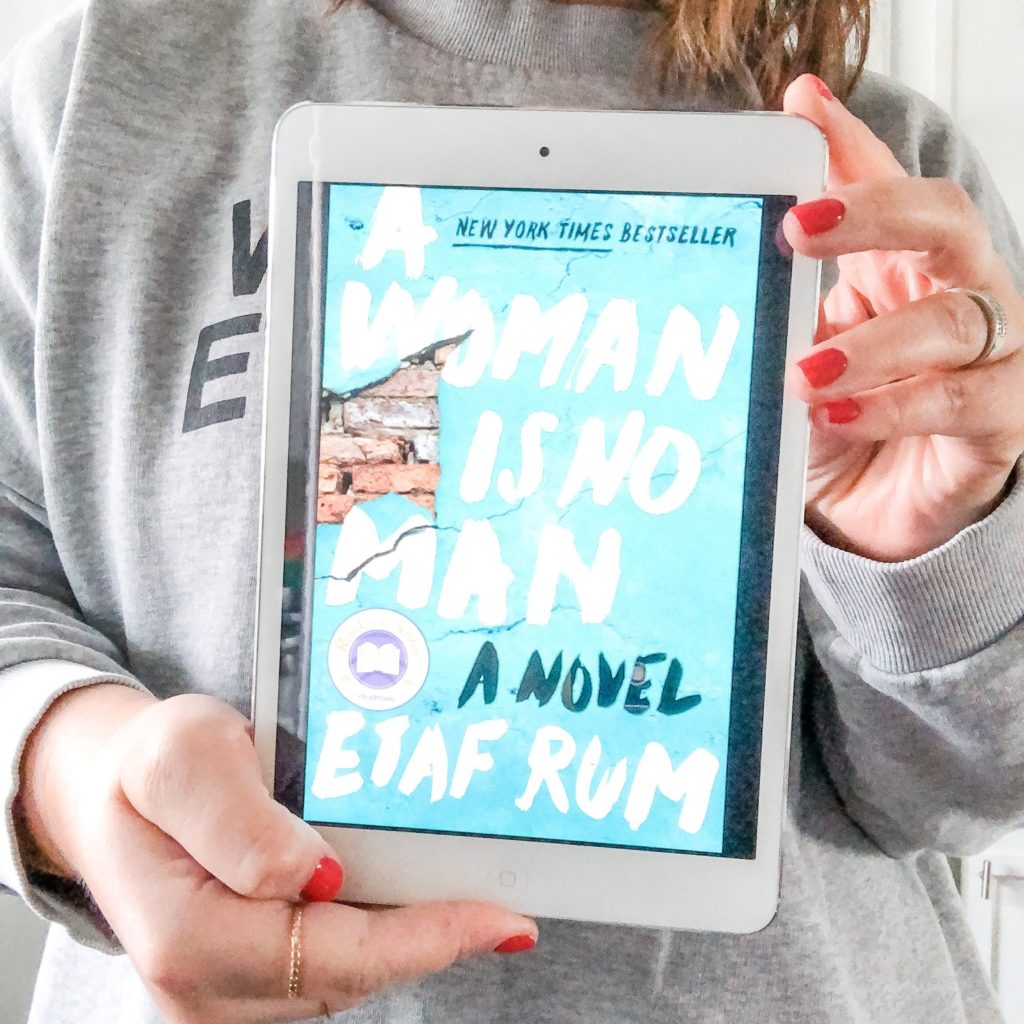
The Book of Longings by Sue Monk Kidd
Without exaggeration, this book will stay with me the rest of my life. What a gift of writing.
One phrase—coins of light—that I particularly loved: “the sun filtered through the leaves, coins of light on her shoulders.”
And this:
“‘A man’s holy of holies contains God’s laws, but inside a woman’s there are only longings.’ The she tapped the flat bone over my heart and spoke the charge that caused something to flame up in my chest: ‘Write what’s inside here, inside your holy of holies.’
“Lifting my hand, I touched the bone my aunt had just struck to life, blinking furiously to hold back a tumult of emotion.
“Our one true God dwelled inside the Holy of Holies in the Temple at Jerusalem, and I was sure it impious to speak of a similar place existing inside humans, and worse still to suggest that yearnings inside girls like me had intimations of divinity. It was the most beautiful, wicked blasphemy I’d ever heard. I could not sleep that night for the ecstasy of it.”
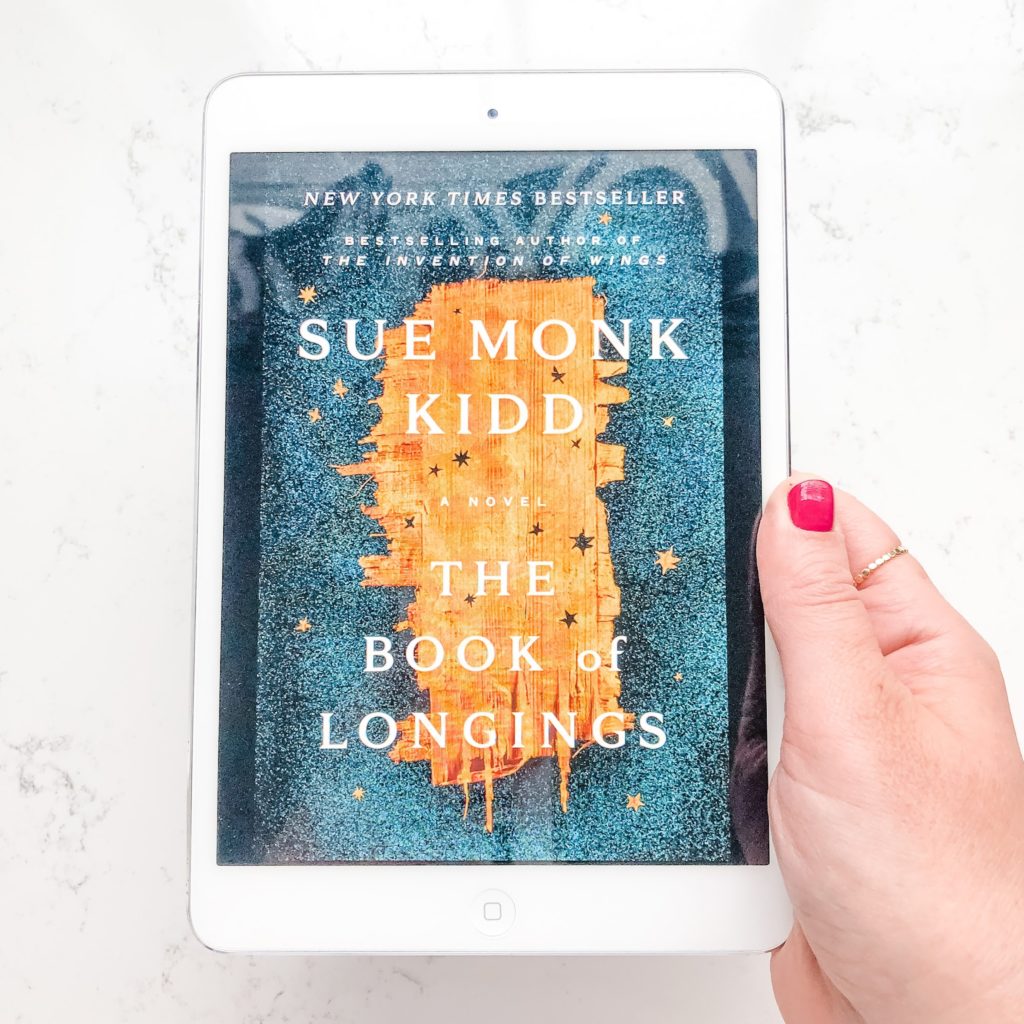
Maid: Hard Work, Low Pay, and a Mother’s Will to Survive by Stephanie Land
“As I pushed my cart away, my hands still shaking, the old man nodded toward my groceries and said, ‘You’re welcome!’
“I grew infuriated. You’re welcome for what? I wanted to yell back at him. That he’d waited so impatiently, huffing and grumbling to his wife? It couldn’t have been that. It was that I was obviously poor and shopping in the middle of the day, pointedly not at work. He didn’t know I had to take an afternoon off for the WIC appointment, missing $40 in wages, where they to weigh both Mia and me. We left with a booklet of coupons that supplemented about the same as the lost wages, but not the disgruntled client whom I had to reschedule, who might, if I ever needed to reschedule again, go with a different cleaner, because my work was that disposable. But what he saw was that those coupons were paid for by the government, the money he’d personally contributed to with the taxes he’d paid. To him, he might as well have personally bought the fancy milk I insisted on, but I was obviously poor so I didn’t deserve it.”
“Without food stamps, we would have frequented food banks or free meals at churches. Without childcare assistance, I wouldn’t have been able to work. The people lucky enough to remain outside the system, or on the outskirts of it, didn’t see how difficult those resources were to obtain. They didn’t see how desperately we need them, despite the hoops they made us jump through.”
This is a solid 5-star book and a really important read for everyone, but especially those of us lucky enough to have a savings account cushion and a home and a car, not living paycheck to paycheck or rationing coffee as a substitute for a meal. What a major gut-check on the system we have that keeps the poor poor and the rich rich.
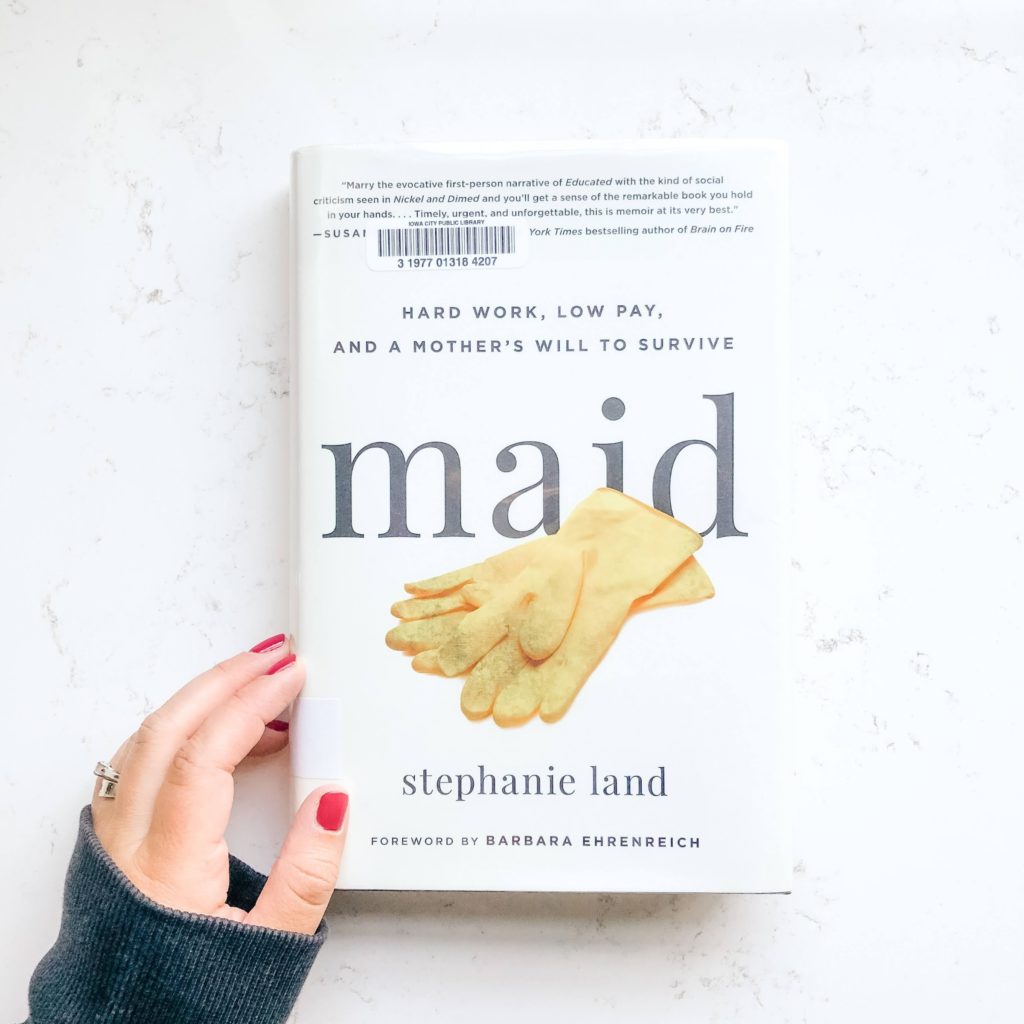
Anxious People by Fredrik Backman
“A bank robbery. A hostage drama. A stairwell full of police officers on their way to storm an apartment. It was easy to get to this point, much easier than you might think. All it took was one single really bad idea.
“This story is about a lot of things, but mostly about idiots. So it needs stated from the outset that it’s always very easy to declare that other people are idiots, but only if you forget how idiotically difficult being human is. Especially if you have other people you’re trying to be a reasonable good human being for.”
Fredrik Backman (author of another of my favorites, A Man Called Ove) does it again! I lovvvved this book; it was the perfect mixed of mystery, humanity, and but…wait…what…🤯.
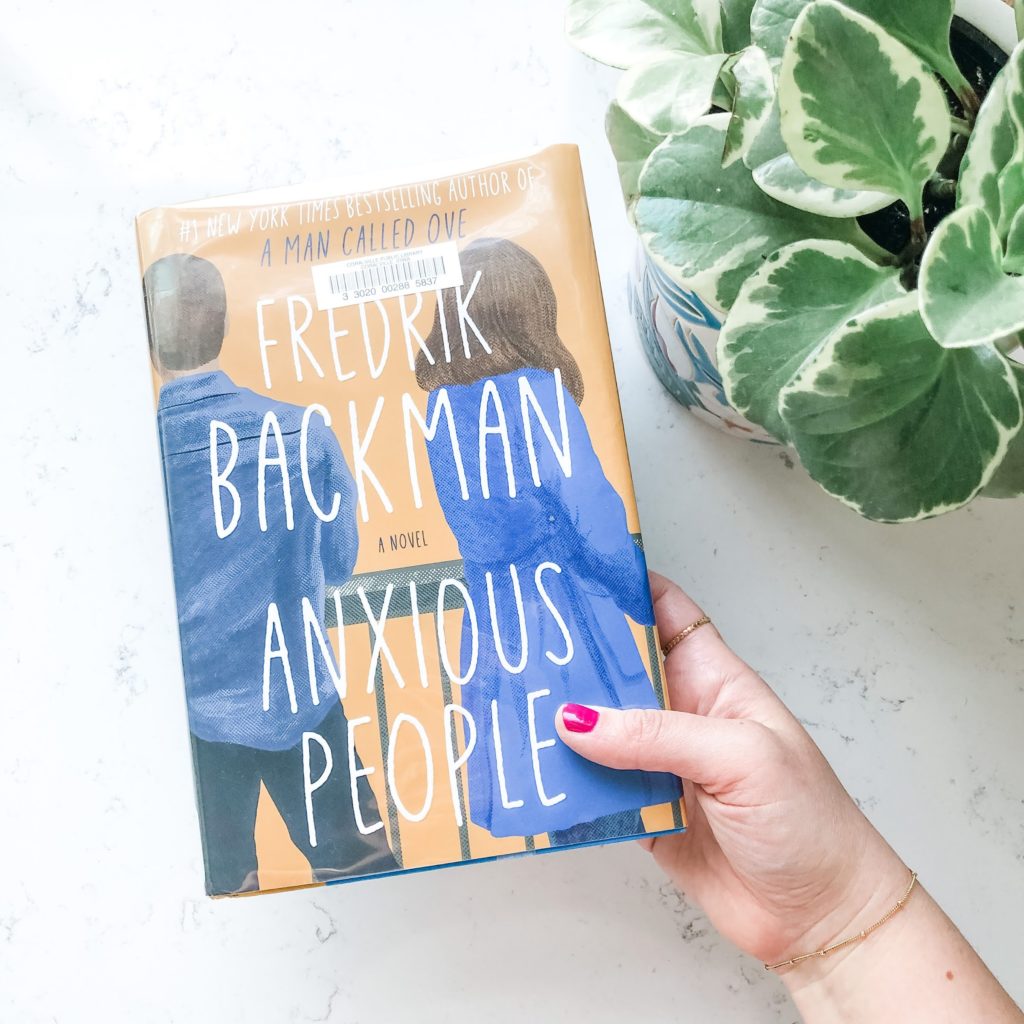
A Promised Land by Barack Obama
“There are people in the world who think about about themselves. They don’t care what happens to other people so long as they get what they want. They put other people down to make themselves feel important.
“Then there are people who do the opposite, who are able to imagine how others must feel, and make sure that they don’t do things that hurt people.
“So,” she said, looking me squarely in the eye. “Which kind of person do you want to be?”
I switched from eye to audio version about a third of the way through and it was a solid decision as just hearing Obama’s calm, rational voice instantly makes me feel good (though I did miss the ability to highlight portions as I went). The respect and reverence he had for the office and position of Commander in Chief is evident in every one of his recollections, all 768 pages. This book is long and dives deeply into the decisions and behind-the-scenes of campaigning, winning, and being Present of the United States. It is beautifully written and is an amazing literary piece of history.
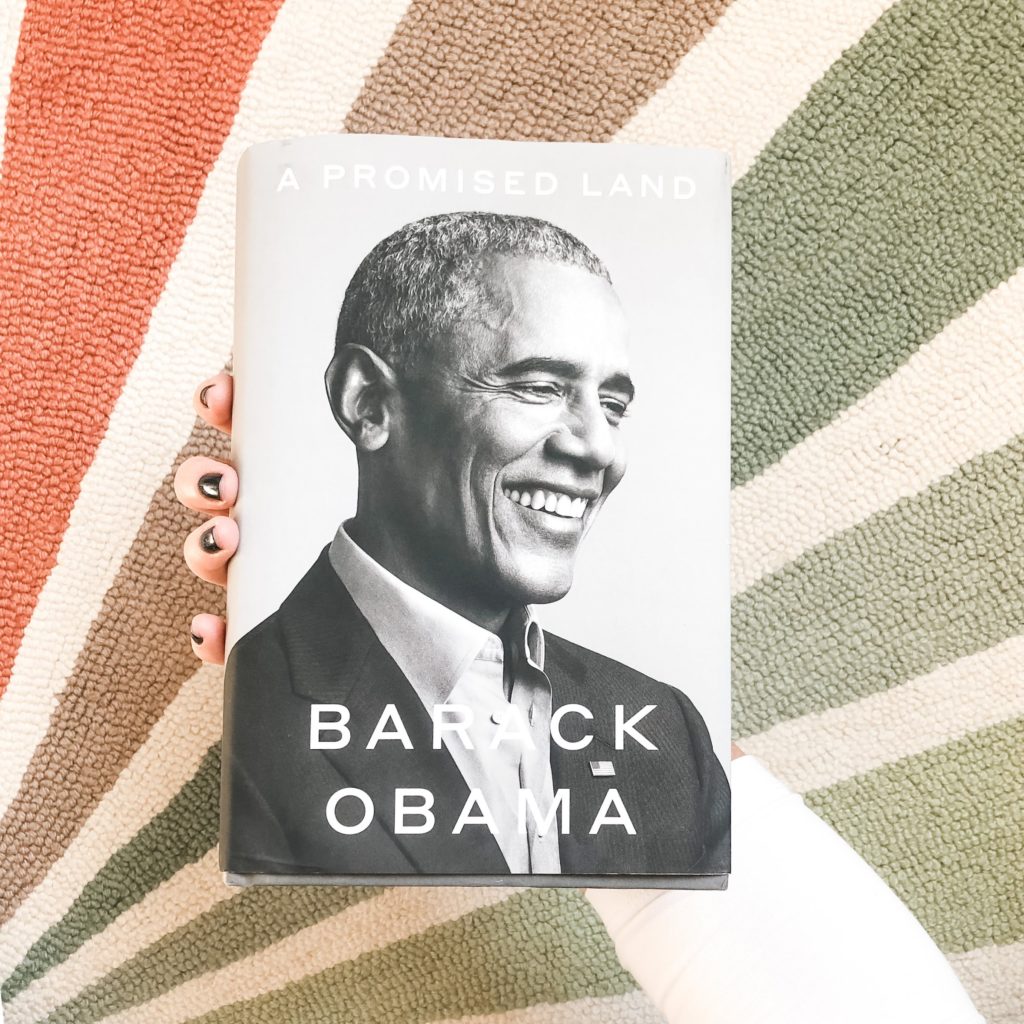
Live Your Life: My Story of Loving and Losing Nick Cordero by Amanda Kloots with Anna Kloots
Tonight starts semi-finals on DWTS and Amanda will be dancing to Nick’s song “Live Your Life” so it seems like a perfect day to tell you how beautiful and heart-wrenching and lovely this book is.
You may have followed Nick’s journey (via Amanda’s Instagram) in real time last year when Nick was in the hospital battling COVID. Amanda’s eternal optimism was on full display in this memoir and was so inspirational, but I equally loved her vulnerability with the immense grief she endured and continues to walk through. Just this morning, she posted that “grief and therapy for it does not have a time limit. It continues on as we face new challenges in our lives. That is why grief is so hard, it never goes away. Grief is love, love holds no limit.”
You’ll know the outcome from the cover, but you cannot fully be prepared for both the joy and pain of the journey until you read the inside.
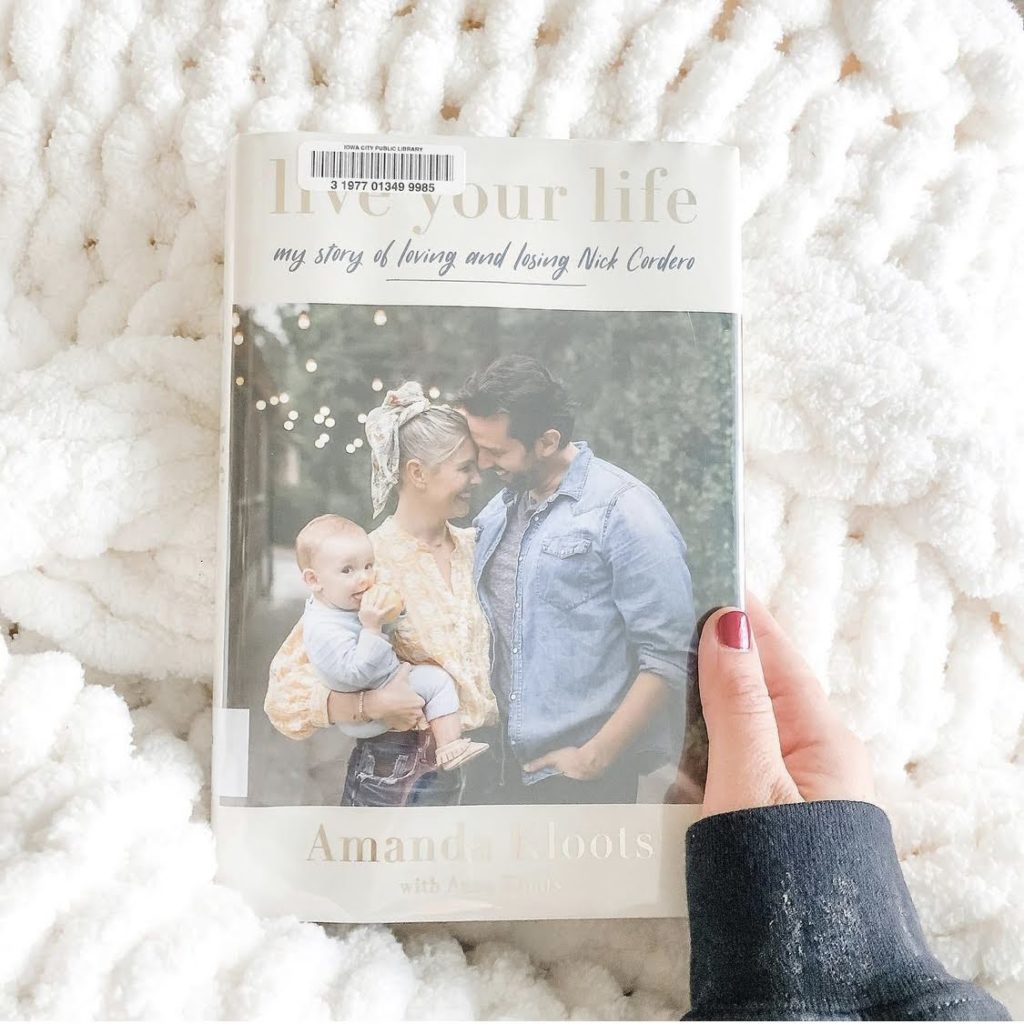
You’ll Never Believe What Happened to Lacey by Amber Ruffin and Lacey Lamar
I wouldn’t have guessed there was a way to write a thoughtful, yet also comedic book about racism, but Amber Ruffin (along with her sister Lacey Lamar) has figured it out. This shouldn’t really be a surprise given that this collection of stories of the daily racism and microagressions is written by the first Black woman to write for a late-night network talk show (Late Night with Seth Meyers). Nevertheless, I found myself both laughing and also cringing at the s*it that Black people have to put up with because white people just can’t get over ourselves. This book also, whether intended or not, reminded me to be vocal about calling out this behavior wherever I see/hear it. It also gave me an extra dose of admiration for all Black people for keeping their cool when this nonsense happens to them daily. The amount of wear that it takes on their emotional (and physical) well-being is unfathomable.
A solid 5+ stars!!
“But remember what racism is? It makes reasonable people insane.”
“Like, you’ve seen it in movies where the white people try to pick a fight with the Black people because they know the Black people can’t do anything because they’d go to jail forever. But to pull this type of stuff today? Brave.”
“…the world tries to convince you that racism is you overreacting.”
“We are not trying to educate white America, but maybe we accidentally did. Maybe white readers learned that just because your Black friends aren’t sitting you down, going over all their trauma with you, doesn’t mean it doesn’t exist! Maybe you learned that racist stuff happens all the time. Maybe you’ve become emboldened to speak up when you see someone being a racist piece of shit. Maybe you’ve realized the racist piece of shit was you! I don’t know. I don’t know you like that.”
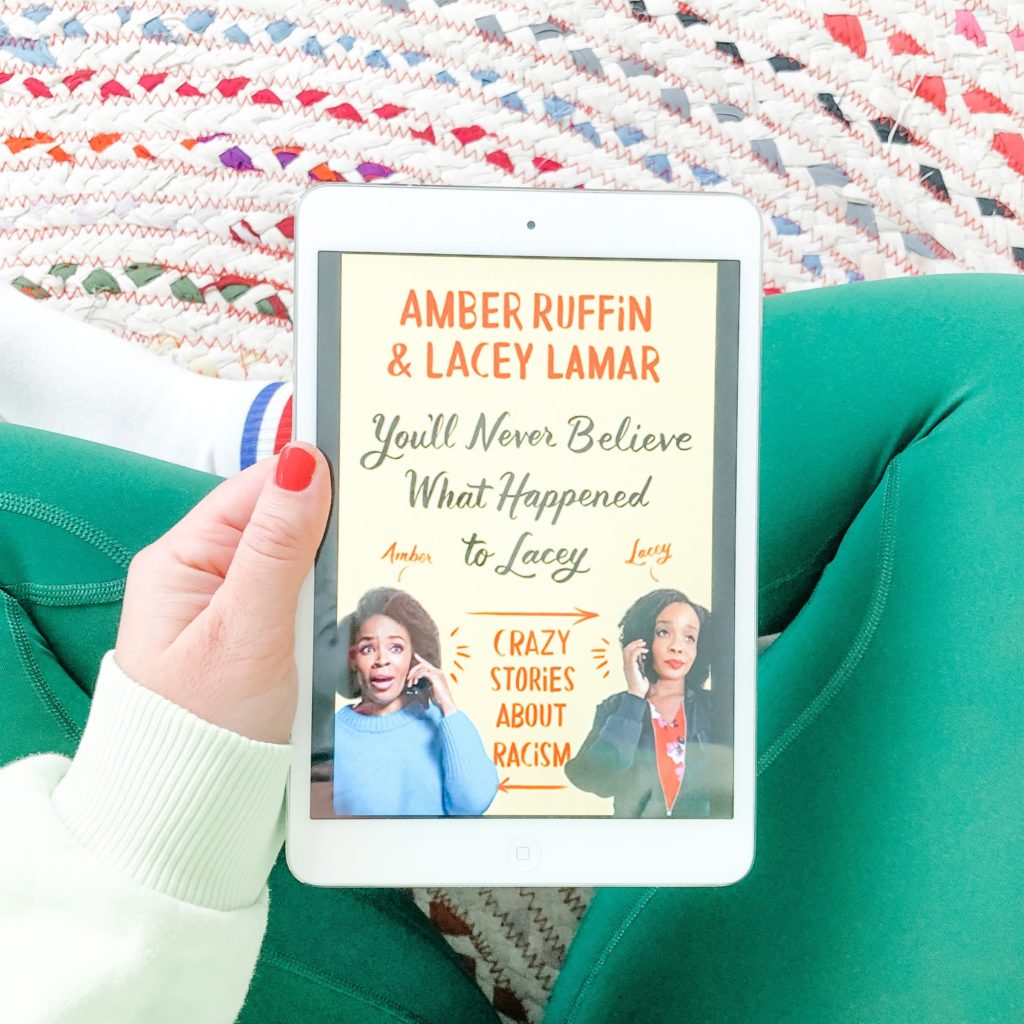
The Four Winds by Kristin Hannah
“The wind picked up, ruffled [Elsa’s] dress. She paused in beating the rug, sweat running down her face…and tented a hand over her eyes. Past the outhouse, a murky, urine-yellow haze burnished the sky. Elsa tilted her sun hat back, stared out at the sickly yellow horizon. Dust storm. The newest scourge of the Great Plains. The sky changed color, turned red-brown. Wind picked up, barreled across the farm from the south. A Russian thistle hit her in the face, tore the skin from her cheek. A tumbleweed spiraled past. A board flew off the chicken coop and cracked into the side of the house…The cows mooed angrily and pushed into each other, pointing their bony butts into the dust storm. Static electricity made their tails stand out. A flotilla of birds flew past them, flapping hard, cawing and squawking, outrunning the dust…”
This book got various reviews, but I loved it! Kristin Hannah has written some of my favorites books (The Nightingale, The Great Alone) and I was excited to get my hands on this one. As the other two books of hers that I’ve read, this one is another survival story.
This portion of Emily May’s review was spot on: “The theme of women surviving impossible times runs through all three of the books I’ve read by Hannah. She often focuses on cross-generational bonds, between older and younger women who usually have complex relationships with one another. The Nightingale focused on the women left fighting their own war at home in France during the German occupation. The Great Alone follows a mother and daughter into the Alaskan wilderness, as they fight off threats from outside and within their small cabin. The Four Winds is set during dust bowl era Texas, and focuses on Elsa Martinelli and her daughter as they try to survive the complete destruction of life as they knew it.”
I knew little to nothing of The Dust Bowl era of the Great Depression so this was an especially fascinating read for me from that perspective.
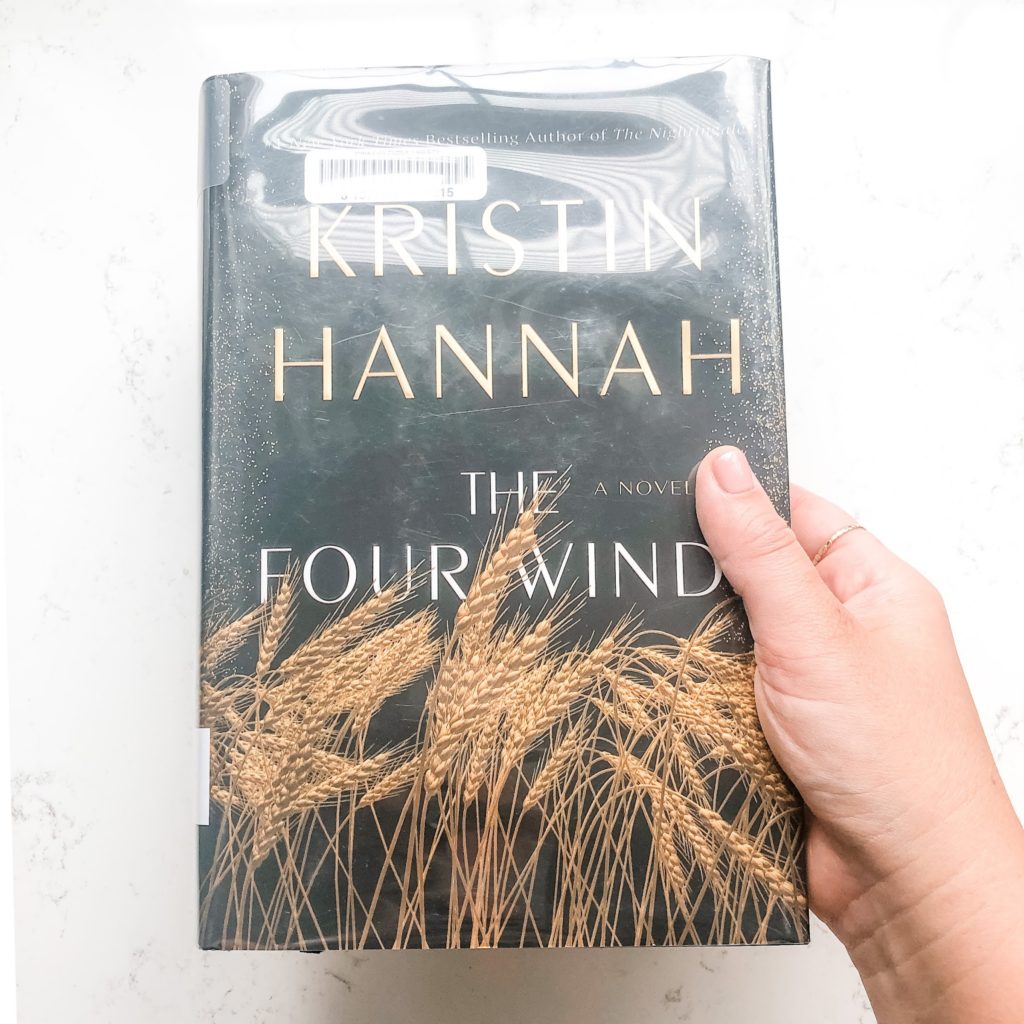
Malibu Rising by Taylor Jenkins Reid
I have read several of TJR’s books and have loved every single one. I was on the library waitlist for this for months and months (actually, several different library wait lists!) and, when I finally got it this week, I blew through it in 3 days.
The book generally follows a 24 hour period of time—7 AM, Saturday, August 27, 1983 to 7 AM, Sunday, August 28, 1983—of the lead-up and collapse of the annual end-of-summer Riva party, but the book is also broken into two parts: the first being from 7 AM to 7 PM and the second being from 7 PM to 7 AM. The first part interweaves all four Riva kids’ perspectives—Nina, Jay, Hud, Kit—of their current lives as well as history of their upbringing, while the second part brings in various party guests’ perspectives as well.
And it is all done with such amazing storytelling that, I promise, you’ll stay up late at night devouring it.
“When there is only you, you do not get to choose which jobs you want, you do not get to decide you are incapable of anything. There is no room for distaste or weakness. You must do it all. All of the ugliness, the sadness, the things most people can’t stand to even think about, all must live inside of you. You must be capable of everything. … Do you know how much a body can weigh when it falls into your arms, helpless? Multiply it by three. Nina carried it all. All of the weight, in her arms, on her back.”
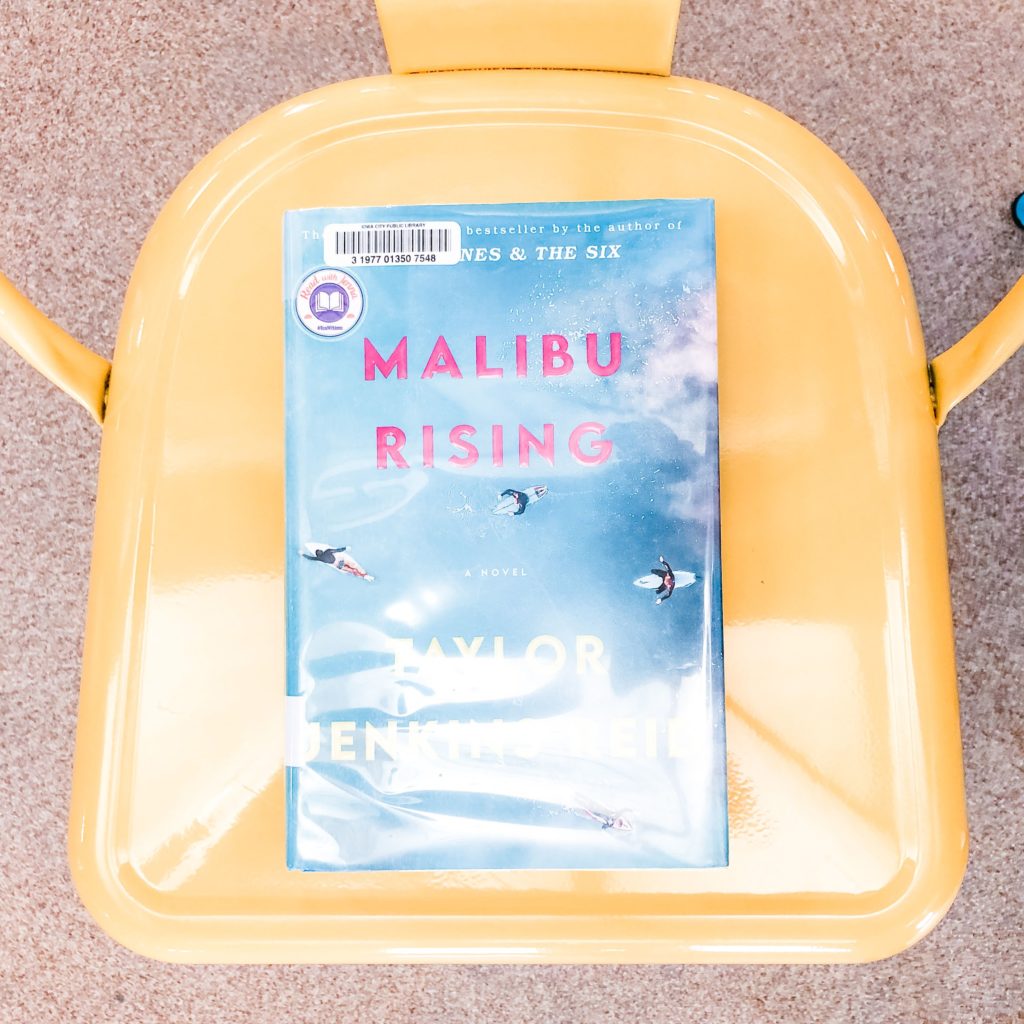
Such a Fun Age by Kiley Reid
I couldn’t have written a better review than my friend, Gail, who has always steered me in the right direction with entertainment recommendations (books, shows, movies, articles, music!), so I am borrowing her words to tell you how necessary it is that you read this book: Entertainment Weekly was spot-on when it wrote that Kiley Reid had written “the most provocative page-turner of the year.” With “Such a Fun Age,” Reid immerses her readers in the transactional relationship of Alix and Emira.
Alix is a Waspy 30-something who’s shot to modest fame with her online brand as a feminist cheerleader (a brand that, over the course of her novel, Reid calls into question as a disingenuous, navel-gazing charade). With Alix, Reid simultaneously skewers “influencer” culture while creating the best mean girl character since Regina George. (And yet, the fact that, as Tina did with Regina, we still find ways to empathize with Alix speaks volumes about Reid’s impressive talent.)
Emira happens to be the young black woman babysitting Alix’s precocious toddler, Briar. As a recent college graduate, Emira’s struggling to define her career aspirations, trying not to begrudge her girlfriends whose professional lives are taking off in a way that’s leaving her—and her IKEA furniture—behind. For now, she’s content to keep watching Briar, a child she suspects she loves in a deeper way than the woman who’s paying her in cash every week to help raise her.
The opening chapter of the book finds Emira at a grocery store with Briar, being interrogated by a security guard and a white shopper who fears Emira’s kidnapped this white child. It is the kind of aggravating racial aggression experienced on the daily by (too) many black people, and Reid makes the scene feel as real as if you were watching it play out on your television. (Speaking of, I cannot wait to see how Lena Waithe adapts this story from page to screen.)
The chapters that follow track what happens after this frustrating night, chronicling the aftereffects of the incident on Alix, on Emira, and on Kelly, the white customer who becomes Emira’s boyfriend soon after he sends her the video he recorded on his phone of the charged encounter.
The way the lives of these characters intersect is as surprising as it is surreal. I was more than happy to accept a (fairly major) coincidence Reid worked into her plot for the resulting pay-off of discovering what she had in store for each of them by the end of the book.
I’ll end this review by saying that “Such a Fun Age” is the most “now” novel I’ve read in … well, ages. In all her young wisdom, Reid has captured in her writing a kind of self-reflection (about race and class and privilege and popularity) that defines a lot of the fears and frustrations of our modern age.
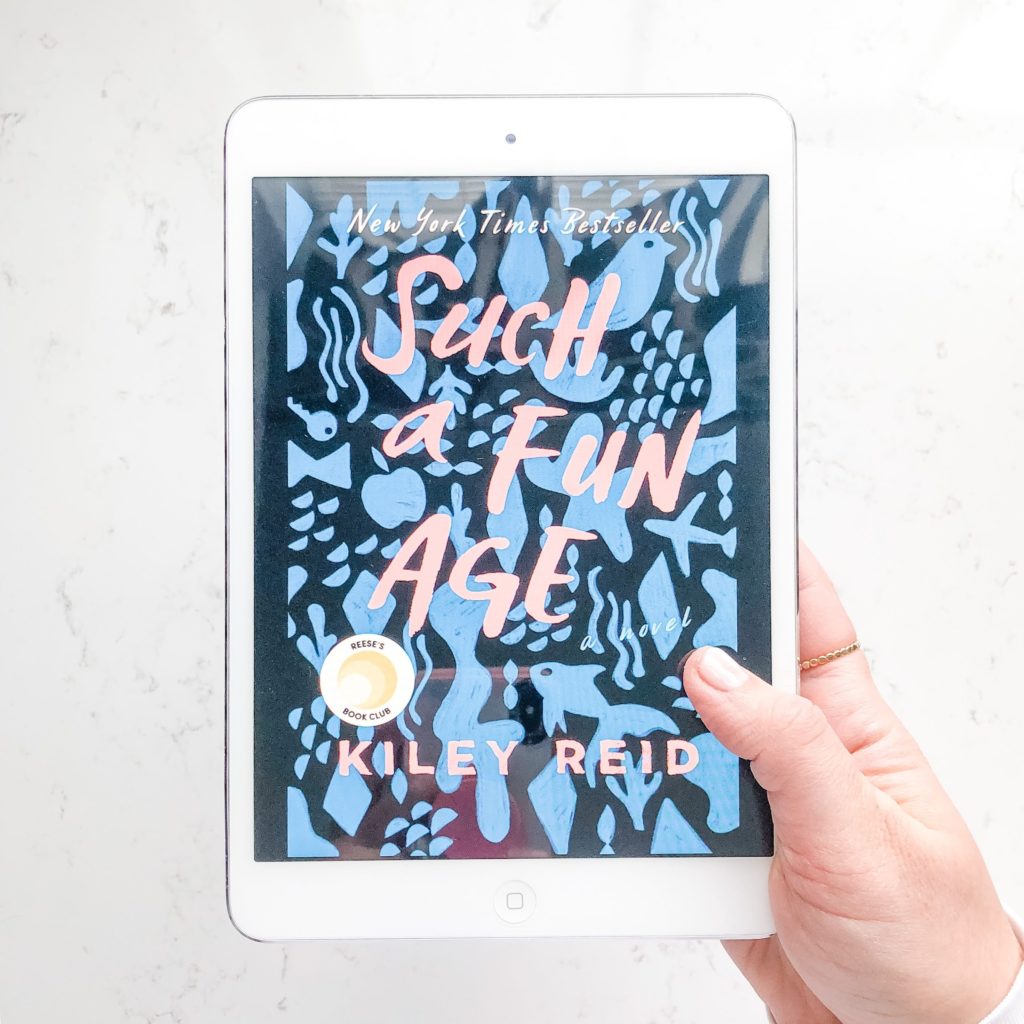
The Book of Lost Names by Kristin Harmel
Paris, 1942: When Eva and her mother are babysitting at a neighboring apartment one night, a huge Jewish roundup happens and Eva’s father is taken and Eva and her mother must secretly flee Paris before they are also captured. This leads to a series of petty forgeries to get them passable travel documents and Eva’s work becomes so good that she is asked to become a forger in the resistance. Her primary job is making new identities for the hundreds of Jewish children being smuggled through the town of Aurignon that Eva ends up in on her way to freedom. She wants to keep a record somehow of these children’s real names so as not to erase them from history (and so in the future, they can hopefully reunite with their families), but there’s too much danger in any simple method of recording given names with new identities. Eva and her forging partner, Rémy, devise a method of using the Fibonacci sequence (which I had to do a deep dive into online!) to make markings in a book in the Catholic Church library where they work. The priest, Père Clément, Rémy, and Eva are the only who know about the book or what the markings mean. So, in 2005, when Eva, now semi-retired, and working part-time as a librarian in the States, see an article about the books recovered from Nazi theft—and the picture in the article is of her book (especially curious to the recoverers because of the strange markings inside that make no sense)—Eva packs her bag and heads back to the heart of her past.
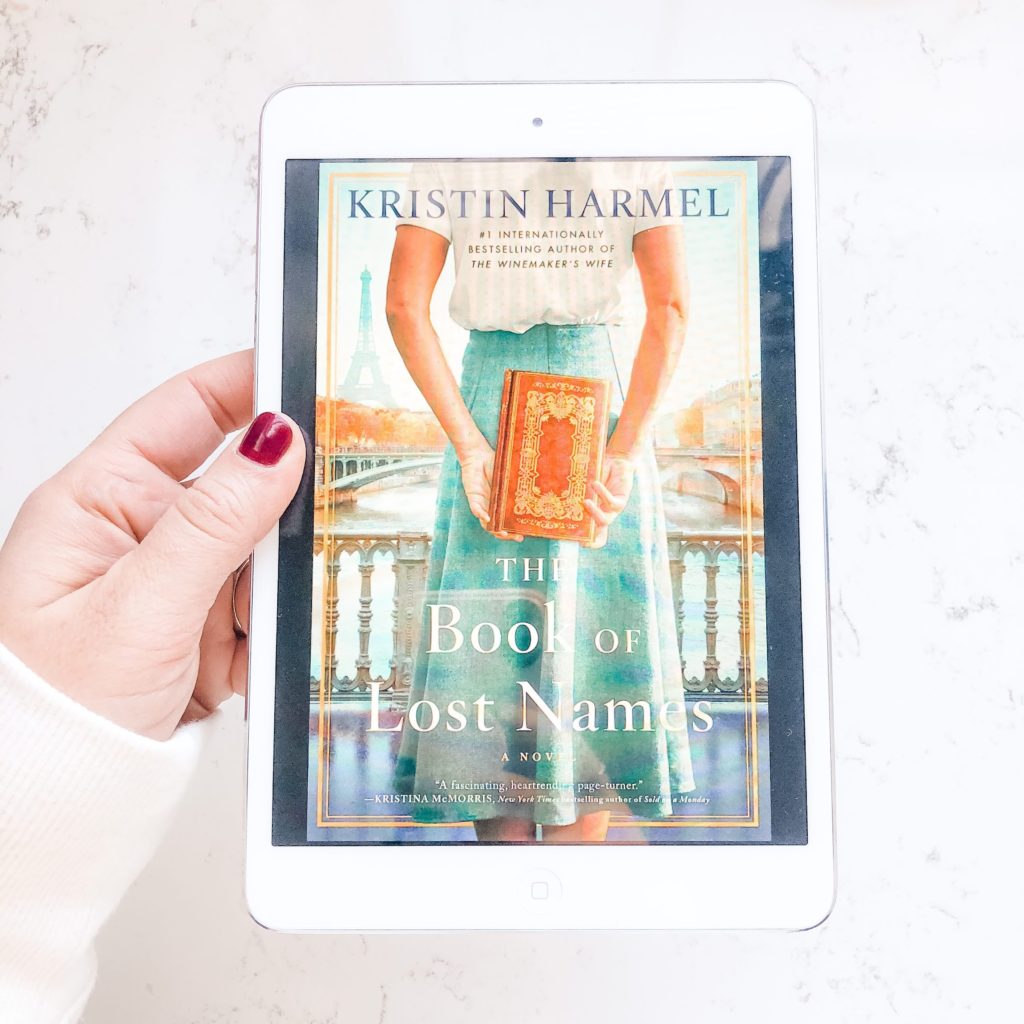
Uncomfortable Conversations with a Black Man by Emmanuel Acho
Aside from the cringe-worthy mention of Carl Lentz (his scandal emerged after the book was published so I have no idea whether Acho would’ve included it had he known), this book is a really great “beginners reader” to racism and racial issues. That is to say, Acho covers a lot of topics (all racially related) and includes historical facts to back them up his points. It’s a quick read (about 250 pages) and I appreciated his candid approach to difficult, shall I say uncomfortable, conversations.
I would highly, highly recommend this to everyone, but especially to anyone who is just starting their journey in confronting their own racial bias, whiteness, and privilege. And for those who just have questions they don’t feel comfortable asking. (And for the record, the N-word is off limits in case anyone had a question about that. And if you need a reason why, because you just really feel like you should be entitled to say it (you’re not), he’ll break that down for you as well.)
“When I say that reverse racism is a myth, what I mean is that, though individual black people can be prejudiced against white people, reverse racism by black people at large against white people at large just doesn’t exist. It can’t exist, because that’s not how collective power works in this country. …white talk: a.k.a. strategies white people use–consciously or not–to insulate themselves from their collective participation in racism.” pg. 85
“For similar reasons, it’s at best insensitive to say “All lives matter” when someone says that black lives matter. White lives have never been in danger from black lives to the degree that black lives have been endangered by white people and whiteness, and that’s on an individual and a systemic level. While some people say it to provoke conflict and others might do it for the sake of inclusivity, in either instance, it’s insensitive and harmful.” pg. 91
“‘So, when we say “all lives,” are we talking about White lives? And if so, then let’s just say that. ‘Cause it’s coded language.'” – quote by Jason Reynolds, pg. 91
“Discuss with them how racism is on the hands of white people in general as well as white people in particular, how even though they might not believe themselves overtly racist, that they could be acting in a way that fosters racism or fails to discourage it.” pg. 93
“‘We have a system of justice that treats you better if you’re rich and guilty than if you’re poor and innocent.'” – quote by Bryan Stevenson, pg. 106
“‘We must never come to see that human progress never rolls in on the wheels of inevitability. It comes through the tireless efforts and the persistent work of the dedicated individuals who are willing to be co-workers with God. And without this hard work, time itself becomes an ally of the primitive forces of social stagnation. So we must help time and realize that the time is always ripe to do right.'” – quote by Dr. Martin Luther King Jr., pg. 157
“As long as systemic racism exists, you can best believe there will be the need for people to protest it.” pg. 170
“‘Someone who makes the commitment and effort to recognize their privilege (based on gender, race, sexual identity, etc.) and works in solidarity with oppressed groups in the struggle for justice. Allies understand that it is in their own interest to end all forms of oppression, even those from which they may benefit in concrete ways. Allies commit to reducing their own complicity or collusion in oppression of those groups and invest in strengthening their own knowledge and awareness of oppression.'” – quote from Racial Equity Tools’ website, pg 178
“How are you as a white person holding other white people accountable?” pg. 183
“The lesson there is that being an ally means showing up.” pg. 185
“The racism I’ve covered in this book falls into three basic categories. The first is individual–the acts and expressions of discrimination, stereotyping, ignorance, or hate one person can level at another–and is broadly what we covered in part 1. The second level is systemic racism: the unfair policies, practices, and procedures of institutions that produce racially inequitable outcomes for black people and POC, while also yielding advantages for white people. You remember part 2. The third level of racism is a little different; it doesn’t map onto part 3, rather it runs through and under a lot of the pain in this book. That’s internalized racism: when people of color support white privilege and power, or when they’re driven to doubt who they are, or doubt each other, or accept the status quo.” pg. 193

add a comment
+ COMMENTS